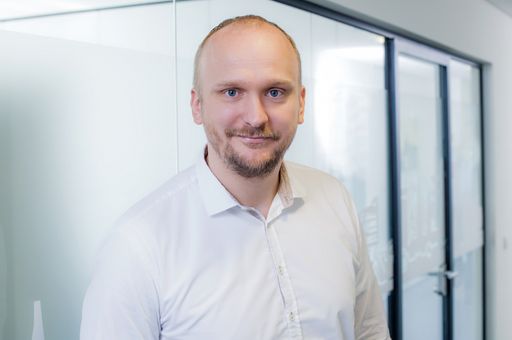Dear take-e-way Customers, dear Members of the VERE Association,
On June 1st, 2012 the most important regulations of the “Gesetz zur Neuordnung des Kreislaufwirtschafts- und Abfallrechts” (= law regarding rearrangement of the Recycling Law and the law on disposal) (BGBI. I p.212) are coming into force. Firstly, it serves to replace the “Kreislaufwirtschafts- und Abfallgesetz” (= Recycling Law and law on disposal) (KrW-/AbfG) by the new “Kreislaufwirtschaftsgesetz” (= Recycling Law) (KrWG), included in item 1. Furthermore, item 3 and 4 include modifications of the Electrical and Electronic Equipment Act (ElektroG) and of the Battery Act (BattG). Beside purely editoral modifications to adapt to the law title of the KrWG and other terms, it is also regarding an amendment to the act with regard to content, which is mainly important for manufacturers and suppliers. Please find following a short summery.
Modifications of the ElektroG
The term of the distributor is extended in § 3 para. 12 phrase 2 ElektroG (mentioned below):
"(12) Anybody offering new electrical and electronic devices commercially to users is a distributor in the sense of this law. The distributor is regarded as manufacturer in the sense of this law, as far as he is offering new electrical and electronic devices for sale by intentionally or negligently not or not properly registered manufacturers.“
The legislator has included the supplement, since it was problematic in a penalty procedure before the Higher Regional Court (OLG Naumburg), if the definition of a fictitious manufacturer in § 3 para. 12 phrase 2 ElektroG (Electrical and Electronic Equipment Act) on the backs of the distributor also applies, if the manufacturer who delivers goods to him may present a registration, but this registration is incorrect or incomplete for instance if the manufacturer is registered with a wrong type of device or without the brand of the distributed devices. This legal loophole is rectified by means of this modification. In the future, it is possible to hold an at least negligently acting distributor liable, unquestionably and in particular oblige him to pay a fine, if his supplier is registered as manufacturer in the sense of the ElektroG (Electrical and Electronic Equipment Act), but the registration does not refer to the type of device and the brand of the distributed devices. Therefore, for distributors a thorough inspection of the online register of the foundation EAR is even more important.
Also other amendments of the ElektroG (Electrical and Electronic Equipment Act) go back to experiences with the penalty of offences. This refers to the new paragraphs 14 and 15 of the § 3 ElektroG (Electrical and Electronic Equipment Act):
"(14) Bringing into circulation in the sense of this law is the delivery against payment or free of charge to third parties with the objective of distributing consumption or use.
(15) Offering in the sense of this law is the presenting or public making available of electrical and electronic equipment, aimed to the conclusion of the sales contract; this also includes the request to submit a quotation.“
These new terms are related with the amendments in § 6 para. 2 phrase 6 (new) ElektroG (Electrical and Electronic Equipment Act), which is fined according to § 23 para. 1 No. 4a (new) ElektroG (Electrical and Electronic Equipment Act):
"Distributors may not offer any electrical and electronic devices for sale, if the manufacturers did not register or not register properly contrary to phrase 1.
With these new wordings the legislator has taken into account the fact that distributors of electrical and electronic devices were acquitted by the Higher Regional Court (OLG Naumburg) whom the “Umweltbundesamt” (= German federal environmental agency) reproached a culpable violation of the obligation to register on the bases of quotations on internet platforms or advertisements. The Higher Regional Court (OLG) has asserted in the lower court that the term of placing on the market as act in the sense of the arguable administrative offence assumes the delivery of devices to third parties and this was unverifiable in the particular cases. In the future, an administrative offence is already punishable by offering electrical and electronic device in the sense of § 3 para. 15 (new) ElektroG (Electrical And Electronic Equipment Act). It is no longer important if the device was already delivered to the third party.
The regulation of § 9 para. 1 phrase 1 ElektroG (Electrical and Electronic Equipment Act) was re-edited as follows according to § 23 para. 1 No. 7 (new) ElektroG (Electrical and Electronic Equipment Act) as punishable:
"(9) The detection according to paragraph 1 must only be performed by public waste management services, distributors and manufacturers and must be performed in a way that the later reuse, disassembly and utilization in particular recycling is not being hindered.“
This modification shall emphasise that the gathering of electrical waste by other actors (e.g. commercial salvager's) is forbidden.
Modifications BattG (Battery Act)
The definition of the distributor is re-edited in § 2 para. 14 BattG (Battery Act) as follows:
"(14) Distributor is a person who commercially offers batteries to end users. (15) Offering of batteries in the sense of phrase 1 is the presenting or public making available of batteries, aimed to the conclusion of the sales contract; this also includes the request to submit a quotation.“
§2 para. 15 phrase 2 states as follows in the future:
"Distributors and intermediaries who are offering intentionally or negligently batteries of manufacturers who did not register or did not register properly, according to § 4 para. 1 phrase 1 in relation with the ordinance according to § 20 No. 1 are regarded as manufacturers in the sense of this law.“
§ 3 para. 4 BattG (Battery Act) is re-edited as follows:
"(4) Distributors must only offer batteries to the end users in the scope of this law, if they ensure the obligations to take back to which they are obliged according to § 9 para. 1 phrase 1 that the end user can return the used batteries in accordance with this law; contrary it is forbidden to offer batteries, if the manufacturer did not or did not properly register according to § 4 para. 1 phrase 1.“
These modifications bring about a harmonisation with the definition of the ElektroG (Electrical and Electronic Equipment Act). It is refer to the above mentioned statements.
Statement
On the whole the regulations of the ElektroG (Electrical and Electronic Equipment Act) and of the BattG (Battery Act) are specified with the modifications, which is a good thing from the point of view of the user. However, caution is required with transferring some court decisions to the new legal position. In lots of cases of doubt the details of the circumstances of the case will be taken to consideration.
Author
Attorney and specialist solicitor for administrative law Dr. Holger Jacobj, solicitors office Prof. Versteyl (Burgwedel), main focus: ElektroG (Electrical and Electronic Equipment Act), law on disposal and soil conservation.
Contact
Phone: +49/5139 / 98 95-0, Website: www.versteyl.de, E-Mail: holger.jacobj@versteyl.de


